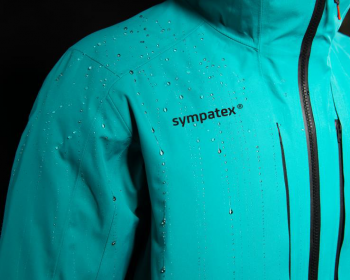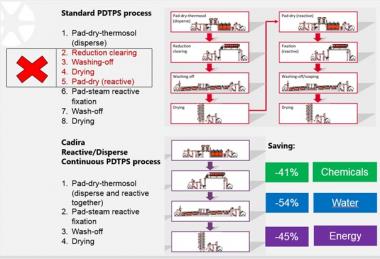DSM/Sympatex Technologies: Launch of Bio-based Arnitel® specialty materials
Royal DSM announces that its DSM Engineering Materials business will launch mass-balanced bio-based Arnitel®, a thermoplastic elastomer, together with Sympatex Technologies. In this way, DSM Engineering Materials is taking the next step on its sustainability journey and enabling its customers to transition to a more circular and bio-based economy.
To address growing consumer and legislative demand for lower carbon footprint and more sustainable feedstock, the sports and apparel value chain is increasingly integrating bio-based materials into its designs. By offering a new range of mass-balanced bio-based Arnitel®, DSM Engineering Materials is enabling membrane manufacturer, Sympatex Technologies to meet these demands and make more sustainable choices.
DSM’s bio-based Arnitel® is manufactured with bio-based feedstock using a mass-balance approach1. The end product contains more than 25% bio-based content by weight.
Sympatex uses Arnitel® to manufacture its waterproof, windproof, and breathable membranes for sports applications. The transition to bio-based feedstock will maintain the unique functional properties of Arnitel® and will enable Sympatex to easily shift to a more sustainable solution with a lower carbon footprint without having to requalify materials.
1 Mass balance accounting is a well-known approach that has been designed to trace the flow of materials through a complex value chain. The mass balance approach provides a set of rules for how to allocate the bio-based and/or recycled content to different products to be able to claim and market the content as ‘bio’-based or ‘recycled’-based. Source: Ellen MacArthur Foundation (Mass Balance White Paper).
EMG














